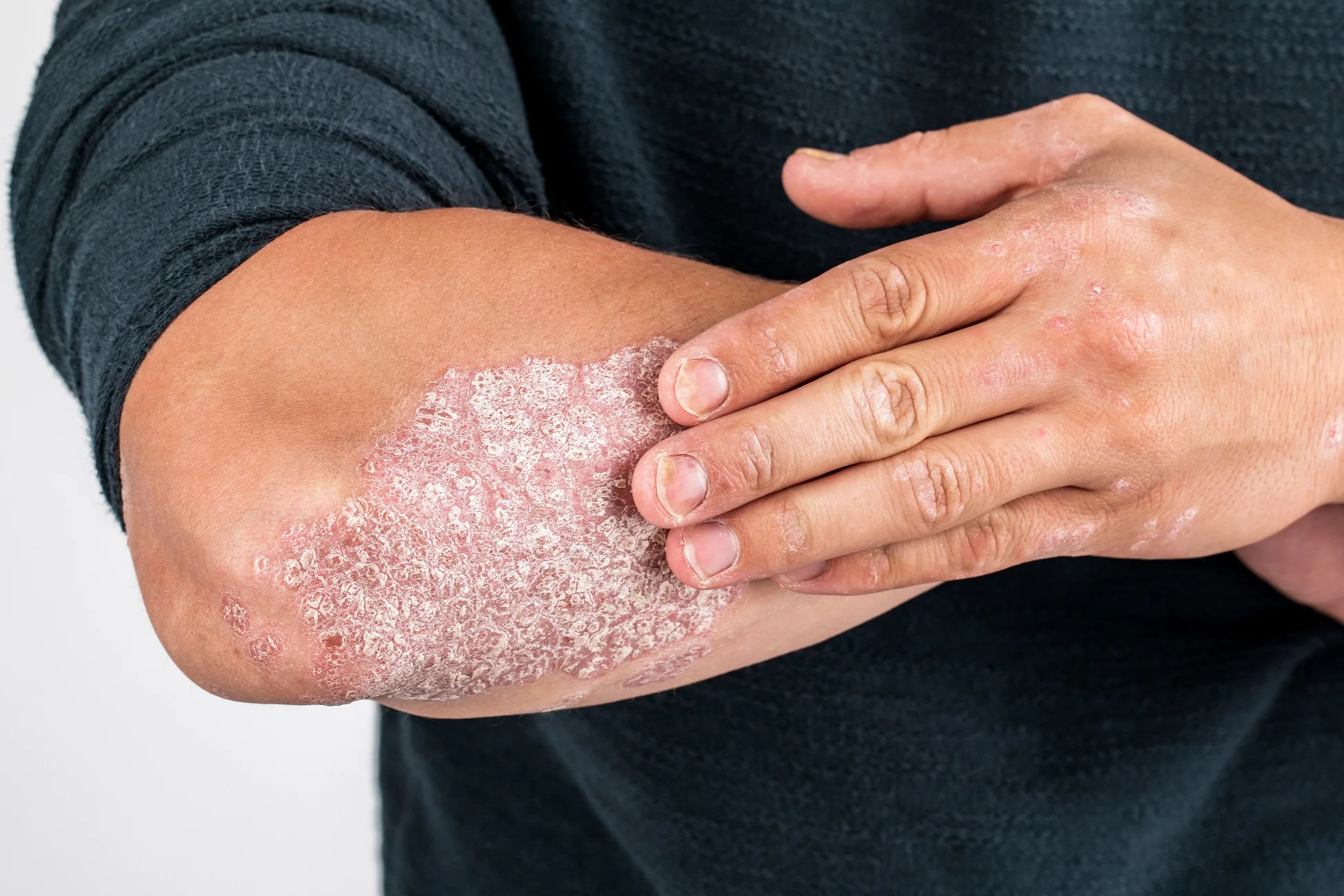Psoriasis

Psoriasis Treatment
Psoriasis is an autoimmune condition that involves rapid cell growth causing thick, red, scaly patches of skin. A combination of genetic factors and immune system dysfunction leads to this condition, in which the immune system mistakenly attacks healthy skin cells. The onset can be triggered by stress, infection, and skin injuries, and can significantly impact an individual’s quality of life by causing discomfort, itching, and emotional distress. Treatment options for psoriasis depend on the severity of the condition and may include topical therapies, phototherapy, systemic medications, and biologic treatments. An accurate diagnosis and personalized treatment plan from a dermatologist are essential for effectively managing symptoms and improving skin health.
Psoriasis can affect individuals of all ages and skin types, often appearing in early adulthood but sometimes developing later in life. When seeking treatment for Psoriasis in Northbrook, IL, you can expect to be evaluated thoroughly by a dermatologist, who will assess the severity of your specific Psoriasis condition and recommend the most appropriate treatments. Depending on the chosen treatment plan, it may take several weeks to months to see significant improvement, with ongoing management often necessary to control flare-ups. If you’re dealing with psoriasis and want to explore effective treatment options, consider booking an appointment at Derm Collective North Shore in Northbrook, IL, to help manage your symptoms and enhance your skin health.
Benefits of Treating Psoriasis
- Reduces the appearance of red, scaly patches
- Alleviates itching and discomfort
- Improves overall skin health
- Minimizes the frequency and severity of flare-ups
- Boosts confidence and self-esteem
- Provides personalized treatment options
- Helps prevent complications related to psoriasis
- Enhances quality of life
- Supports long-term management of the condition
- Professional care and guidance from experienced dermatologists
Faqs About Psoriasis
Can psoriasis be cured?
Psoriasis cannot be cured, but it can be effectively managed with the right treatment plan. Many patients experience significant improvement and can keep their symptoms under control.
What triggers psoriasis flare-ups?
Common triggers for psoriasis flare-ups include stress, infections, skin injuries, certain medications, and weather changes, particularly cold, dry weather.
Is psoriasis contagious?
No, psoriasis is not contagious. It is an autoimmune condition, meaning it is the result of the body’s immune system attacking its own skin cells, and it cannot be spread through contact.
How is psoriasis diagnosed?
Typically, psoriasis is diagnosed by a dermatologist conducting a skin examination. In other cases, a skin biopsy may be needed to determine the diagnosis and rule out other conditions.
Can diet affect psoriasis symptoms?
While diet alone does not cause or cure psoriasis, some people find that certain foods or dietary changes can help reduce their symptoms. It’s important to consult with a healthcare provider before making significant dietary changes.
How often should I see a dermatologist if I have psoriasis?
The visits to a dermatologist will depend on the severity of your psoriasis and the treatment plan. Some patients may need regular follow-ups every few months, while others with well-controlled symptoms may need less frequent visits. Your dermatologist will recommend a schedule based on your specific needs.

